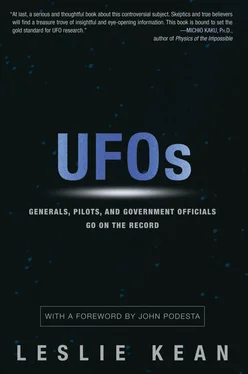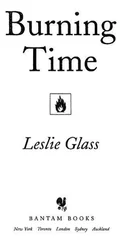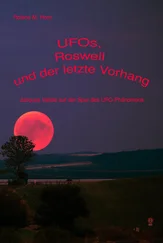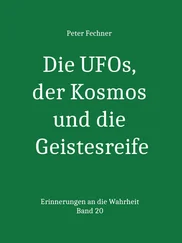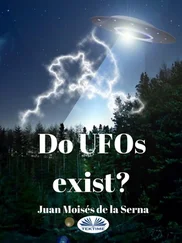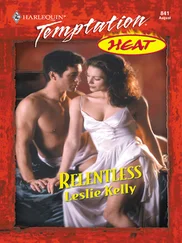The foreword states that the report “contributes toward stripping the phenomenon of UFOs of its irrational layer,” and indeed, the study achieved its goal. Yet the group arrived at a determination that most government officials and scientists in the United States would still consider far-fetched. Meanwhile, everyone agrees that if these UFOs were proven to be probes or vehicles from outside Earth, that would be a monumental development in human history, a milestone in the evolution of civilization. If there was even a slight possibility of such a discovery, I thought, it seemed well worth the effort for scientists to try to find out. And here was a highly respectable group from a sophisticated European country stating that such an outcome was a plausible and even likely expectation.
This explains why and how I first became interested in the issue of UFOs, the question of what we actually do and don’t know about them, and how we might find out more. The COMETA Report was a catalyst. As much as I may have wanted to, it was hard for me to let it go, to simply return to my regular work and set it aside. I kept wondering, could there really be technological objects flying around that are not man-made? Couldn’t these craft possibly be highly secret American constructions, or advanced military test craft from some other country? No, said the generals and the rest of the high-level French panel. Countries do not fly experimental aircraft repeatedly in foreign airspace without informing the host country and then lie about it later. As I dug deeper, I learned that these objects have appeared for decades in a variety of shapes and sizes, sometimes in flaps or “waves,” all over the globe, demonstrating capabilities beyond our scientific understanding. This was not a myth. And maybe, I thought, the French generals and their colleagues knew even more than they disclosed.
Not only did all the members stand by the conclusion, they also urged international action. The writers recommended that France establish “sectorial cooperation agreements with interested European and foreign countries” on the matter of UFOs, and that the European Union undertake diplomatic action with the United States, “exerting useful pressure to clarify this crucial issue which must fall within the scope of political and strategic alliances.” The report, titled “UFOs and Defense: What Should We Prepare For?,” is most fundamentally a call to action, a request for preparedness in anticipation of future encounters with the unknown objects.
I had no idea where all this might lead—for me, for any government, or for our future.
My French colleague called to follow up and explained that he had surreptitiously slipped me an advance English copy of the report, just translated. The news was being held for a later release, and so far the report had been published only in France. My friend knew that I was an open-minded freelance reporter with ties to many publishing outlets, and he wanted me to get a head start on the story rather than leave it to the conventional mainstream media, which rarely took UFOs seriously. “You are the only reporter in all of America to have the English version,” he told me excitedly over the phone from Paris. “It’s all yours. But don’t let anyone know where you got it.”
The challenge was both enticing and nerve-racking. Secretly, I started to look into the UFO subject more extensively, without telling any of my otherwise close colleagues at the radio station. I knew that I was exploring something most journalists considered ridiculous, or titillating at best, but otherwise irrelevant to the life-and-death struggles of human beings, issues that should be the focus of any responsible, progressive reporter. As the months passed and I became increasingly concerned about keeping my expanding interest quiet while producing and hosting a daily investigative news show, I began to feel as if I were covering up something shameful and forbidden, like the use of an illegal drug. In retrospect, the intensity of my worry and insecurity was overblown, but the taboo regarding UFOs had power over me, and it took a while before I felt armed with enough facts and insight to handle the attitudes of those I worked with so compatibly in every other respect.
This was not an easy subject to take on, and I understand why other journalists haven’t done so. At first, I felt burdened by what seemed to be almost insurmountable obstacles. The UFO story was journalistically elusive, contaminated by conspiracy theories, disinformation, and just plain sloppiness, all of which had to be carefully separated from the legitimate material. The questions raised by the UFO phenomenon were deeply disturbing to our accustomed ways of thinking. The subject carried a terrible stigma and was therefore a professional risk for those publicly engaged with it. But it also pointed to something possibly revolutionary, something that could challenge our entire worldview. Although frightening, that made it all the more appealing to me, I have to confess. And the more I learned, the better I understood the validity of additional case studies and government documents shedding light on the UFO question. The aggregate data, the accumulation of evidence over decades, was utterly compelling and completely mystifying. Despite the problems, there was simply no way I could force myself to ignore it.
As it turned out, that unsolicited report from France radically changed the course of my career as a journalist in ways I never could have imagined at the time. UFOs became the focus [4] UFOs became the focus Leslie Kean, “UFO Theorists Gain Support Abroad, but Repression at Home,” Boston Sunday Globe , May 21, 2000.
of my professional life after the publication of my first story about them in the Boston Globe . The editor of the Globe’s Sunday Forum, a weekly news analysis section in which I had published previously, was apprehensive about covering the subject of UFOs. It understandably unnerved her, but after much discussion she was courageous enough to run my lengthy story. I was extremely nervous about “coming out of the closet” professionally as a reporter who—God forbid!—found this silly subject worthy of attention. But I knew this was a scoop, and how could I resist? I broke the news of the COMETA Report, just as my French colleague had requested six months before, and the stature of the generals and others authoring the report carried the day, exempting me from ridicule. I even included additional analysis based on revelatory information spelled out in official U.S. government documents pertaining to UFOs and national security, all of which backed up the French perspective. To my delight, the article was distributed through the New York Times wire service and picked up by newspapers across the country. Clearly, there was national interest.
People following the UFO subject were elated that at least one prestigious newspaper had taken the story seriously, and a congressional staffer even sent a complimentary letter to the Globe . I received numerous e-mails from witnesses to UFO events in response to the article, including a few pilots, who had so far never dared to come forward. My eyes were opened by this, and I had now crossed the point of no return.
The story carried that disquieting quote—printed in black and white, clear as the other stories of the day with which it oddly mingled—about “completely unknown flying machines with exceptional performances that are guided by a natural or artificial intelligence,” as described by the retired French officials. I naively thought this would have to generate some kind of news buzz, and that other journalists would eagerly jump in to pick up where I had left off. I knew there was disdain for UFOs in the culture, but I also knew that this was a breaking story passing muster with a leading mainstream paper. Amazingly, nothing happened . I had been exposed to another aspect of this strange world. It was the beginning of a rude awakening, a rite of passage into the perplexing reality that UFOs cannot be acknowledged at all, even as simply the unidentified flying objects that they are. It was as if everyone was pretending that they didn’t exist.
Читать дальше
